Peer Innovation – Sustainable household sector innovations in collaborative networks New data sources and methods for collecting the contributions of online communities to innovation and sustainability
In the PeerInnovation project, the Institute for Ecological Economy Research and the Technical University of Berlin investigated how people work together on innovative solutions to sustainability problems in their spare time and without payment, and share the results of their work with others. Voluntary activities of so-called user-innovators based on pure self-interest provide important impulses for the creation of new products and technical processes. Innovation researchers have shown, for example, that important innovations in leisure sports, such as skateboarding, kayaking or mountain biking, were not developed by commercial manufacturers, but by the active sportsmen and women themselves. Particularly interesting innovations are created when many interested parties join to work on projects together. Well-known examples are the Linux operating system, Wikipedia, OpenStreetMaps, the agricultural machines of the Open Source Ecology or the 3D printers of the RepRap community. Today, Internet platforms make it easier for these actors to exchange information, share their knowledge with others at a low threshold and also to tackle larger joint innovation projects within decentralised networks based on a division of labour.
In the course of digitisation, it is therefore becoming interesting to also record statistics on innovation activities in the houshold sector (houshold sector innovation). Amateurs in the houshold sector are devoting more time to acquiring, testing and developing new knowledge and sharing their findings with others. How such "free innovations" (free innovation) come about, who takes part in them and what makes them successful has hardly been researched so far. This is where the PeerInnovation project comes in, as there is great potential for the emergence of sustainable, frugal and convivial technologies. For example, the OpenEnergyMonitor helps to monitor energy consumption at home, construction plans for bicycle caravans are shared via the WikiFactory platform, and the WikiHouse project facilitates modular and sustainable construction.
PeerInnovation examined the contributions of user communities to innovation and sustainability in the three fields of action energy, transport and urban development. Interviews, focus groups and social network analysis helped to map actors and innovation projects and identify relevant interaction platforms. The users' digital forums were made accessible as a data source for netnographic analyses. Based on the experiences in the fields of action, the instruments for empirical recording of household innovations were further developed. The findings on the emergence, dynamics and success conditions of cooperation were processed in practical guidelines for economic actors and civil society and translated into innovation policy recommendations for action.
The PICI toolbox
How can innovation activities within peer networks be identified and analyzed? The researchers developed an open source toolbox that can evaluate online forums with the help of code. In the first step, indicators were calculated from the interaction networks of various peer communities, which were then checked for their suitability to determine innovation activities. Suitable indicators were then applied to the overall data set in order to estimate the occurrence of innovation activities in the peer communities.
The PICI toolbox is available on GitHub and can be adapted for other research projects. This interactive infographic explains how it works.



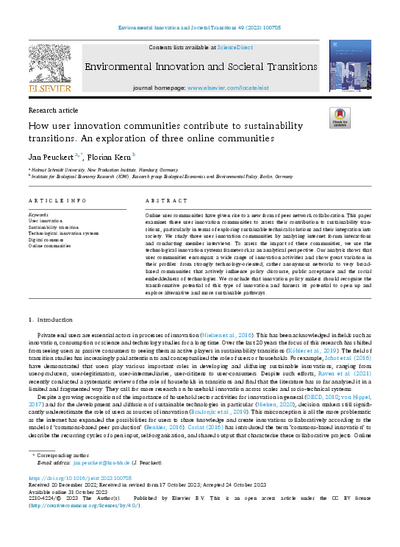
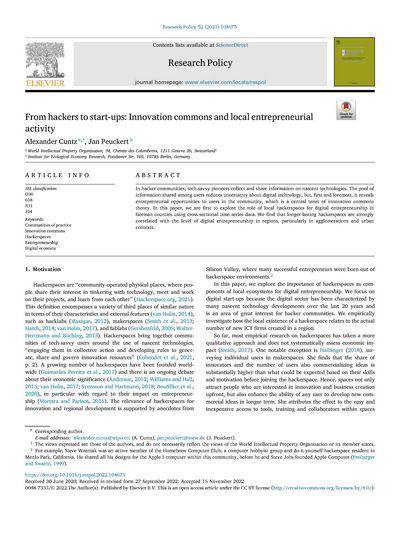
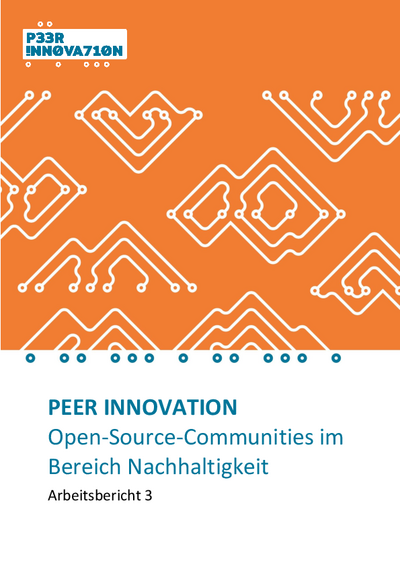
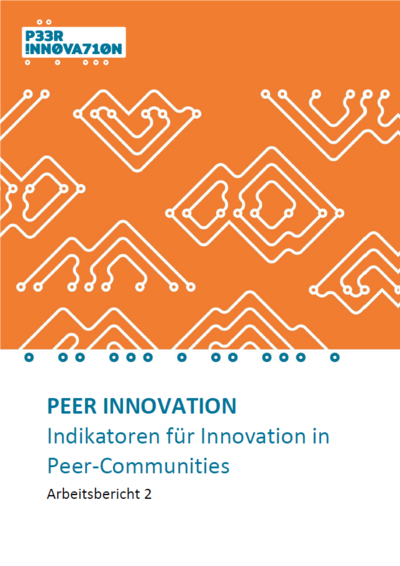
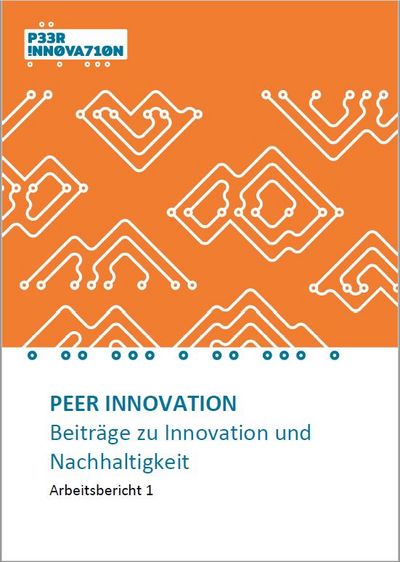
![[Translate to Englisch:] Peer Innovation – Sustainable household sector innovations in collaborative networks](/fileadmin/_processed_/5/b/csm_Peerinnovation_80a99da4e9.png)
